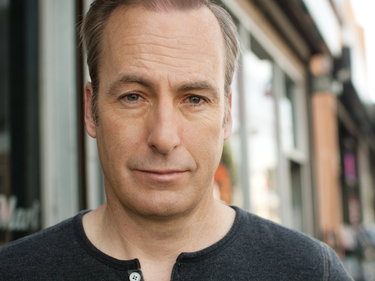
Bob Odenkirk’s most ardent fans know him as one-half of the groundbreaking HBO sketch series Mr. Show. Casual television viewers have seen him on shows like How I Met Your Mother and Breaking Bad. His name is synonymous with alternative comedy ventures ranging from Tim and Eric to the sketch group The Birthday Boys. Earlier this month, he and fellow Mr. Show creator David Cross published a book collecting things you wouldn’t know him for: unproduced screenplays and sketches they wrote. These scripts are funny, outlandish, and unlike anything you’ll find in a movie theater. Perhaps that was the problem. Fifteen years after the inception of the show that launched his career, I called Bob Odenkirk to discuss the nature of Hollywood and rejection, the importance of character commitment, and how he thinks of funny names.
— Zack Ruskin
THE BELIEVER: This a crazy time for you. Breaking Bad is ending, your book with David just came out, the two of you are touring and I hear you have another book coming out in the spring.
BOB ODENKIRK: I’m doing that one with McSweeney’s. It’s coming out in April. As excited as I am about this tour, and as happy as I am with this really crazy novelty book David and I just put out, A Load of Hooey is going to be pure Odenkirk.
BLVR: Is it going to be like David Cross’s book [I Drink for a Reason]? Less comedy memoir and more essays, comedy bits, and tangential rants?
BO: I wouldn’t reference David’s book. It came together in a completely different way. Nobody asked me – I didn’t make a contract to write a book. I write all the time, and this is a collection of things I’ve written over the last eight years. Some of the pieces in my book were in The New Yorker and other magazines. It’s a collection, but it also has a lot of original pieces that haven’t appeared anywhere. You might compare mine more to Woody Allen’s Without Feathers or this collection of Peter Cook’s writing that I love, Tragically I Was an Only Twin. But really it was me writing and writing and writing and finally putting it all together. You’ll see what it is.
BLVR: You’ve also just published Hollywood Said No!, the book co-written with David Cross that collects rejected screenplays written by the two of you. What made now the right time to release these scripts?
BO: There’s no reason they had to be released at this moment. They’re good and dead,...
You have reached your article limit
Sign up for a digital subscription and continue reading all new issues, plus our entire archives, for just $1.50/month.
Already a subscriber? Sign in




